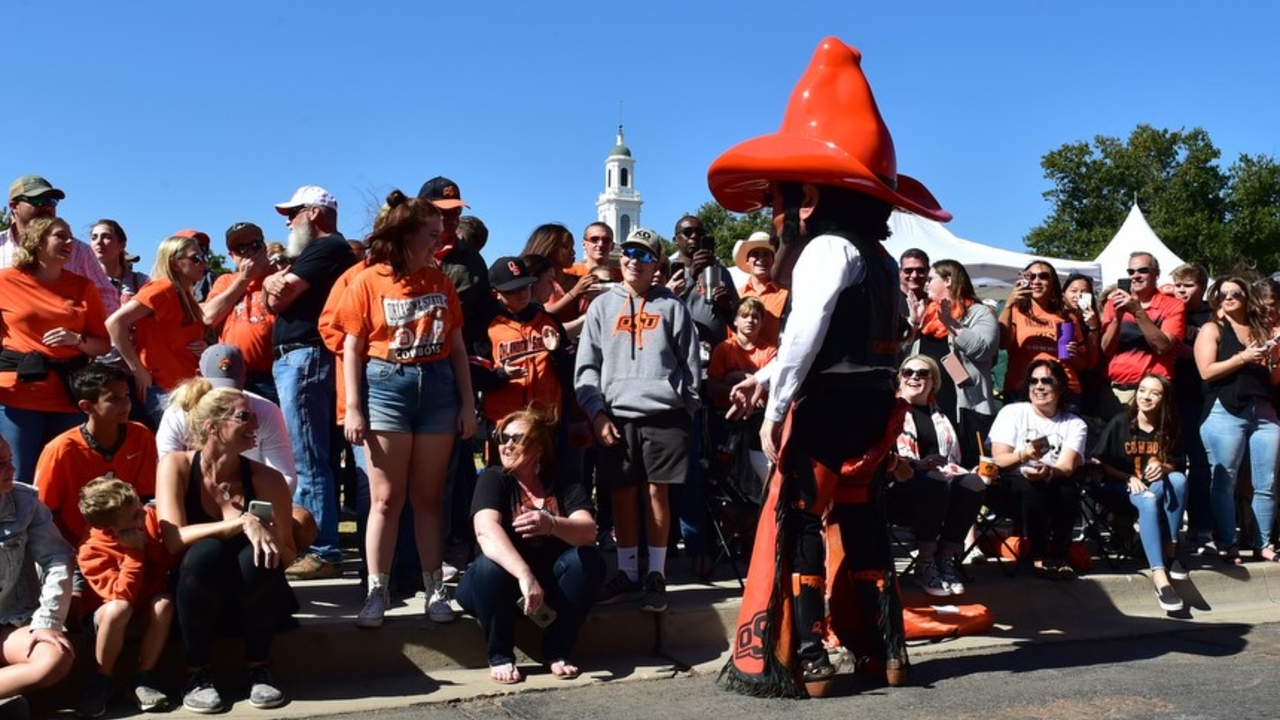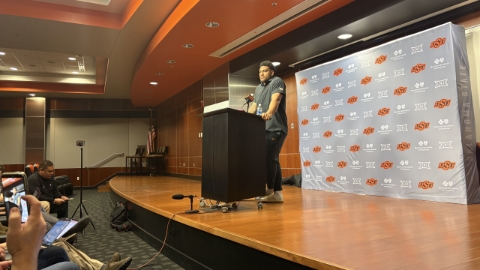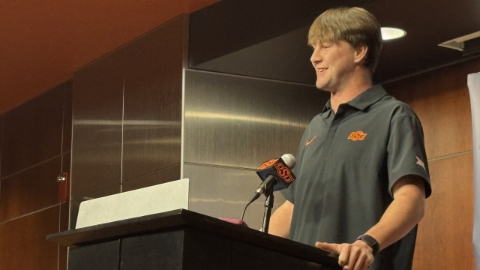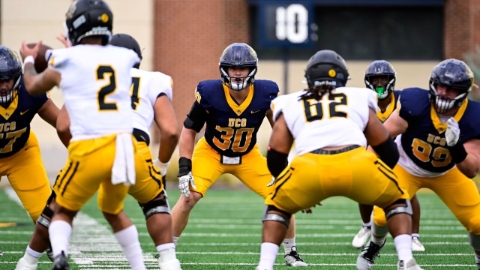STILLWATER – Every day I work to get you something fresh about the subject of conference realignment and currently it is “The Alliance” that has everybody worked up. Just what are the ACC, Big Ten, and Pac-12 up to with this alliance? Many of the media are talking a scheduling alliance, but virtually all of these schools in all three of those conferences have dates booked for quality non-conference games, rivalry games with teams in other conferences, and games with Group of Five or FCS opponents in their region that they are committed to helping financially by scheduling them. Tough to tear up all those agreements.
The Pac-12 and the Big Ten are coming up on television contract negotiations and scheduling each other in so many games and the ACC would probably bring some value. More than the games they have already booked, you would have to do the accounting.
Penn State athletic director Sandy Barbour told ESPN that the alliance is about a lot more than money. I agree and so does longtime college football and sports expert and Oklahoma State graduate Brett McMurphy, now working for The Action NetworkHQ.
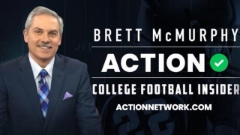
Twitter
Brett McMurphy
“With the NCAA on its’ last legs, the Big Ten or the SEC, somebody is going to have to govern over college athletics,” explained McMurphy. “I think the conferences are seeing that the conference with the most power will be seeing which rules that everybody will go by, so I think that could kind of lend into the power structure going forward. The Pac-12, Big Ten, ACC try and become some Justice League kind of super-heroes and whether that works or not we’ll have to find out.”
The SEC and their commissioner Greg Sankey implied that they would be up for the job during the SEC Football Kickoff and Media Days last month and Sankey said as much in his state of the SEC address. That and the move of Texas and Oklahoma into the SEC is more than likely the biggest reason that the ACC, Big Ten, and Pac-12 have moved toward their “alliance.”
Meanwhile, Oklahoma State, likely the other seven remaining Big 12 schools, and schools like San Diego State, Boise State, and others wait for the Pac-12 to announce some sort of conclusion from their working group that is looking into whether they want to expand. New Pac-12 commissioner George Kliavkoff made it known that was a possibility last Friday in an exclusive interview in the Las Vegas Review-Journal.
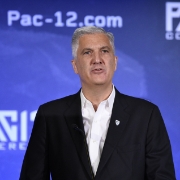
Kirby Lee-USA TODAY Sports
Pac-12 commissioner George Kliavkoff
“I think we’re really, really happy with the 12 that we have in the league. The opportunity to revisit that following Texas and Oklahoma has certainly presented itself. I am not actively poaching any school or convincing anyone to leave their existing conference, but I wouldn’t be doing my job if I wasn’t listening to schools that wanted to go in the Pac-12, and we’ve had a lot of them reach out,” explained Kliavkoff carefully. “Probably all of the ones you would expect and several you’d be surprised by.
“We have taken initial meetings with everyone that has expressed an interest,” he continued. “We have a working group … who are together deciding on what to recommend … At the end of the day, they’ll make the decision about whether or not to offer admission to the Pac-12 to any other schools.”
Kliavkoff added he felt that a conclusion to the question needed to come soon so to not linger on the situation and the rumors it creates. Kliavkoff said in the next two-to-three weeks. My sources say look for something as early as this Friday.
There was another story in The Mercury News saying basically the same thing as the interview in the Review-Journal. We read Jon Wilner’s story but failed to read into it anything definite about the direction the Pac-12 might go.
In our interview with McMurphy, he cited something we have harped on repeatedly, the Pac-12 needs schools in the central time zone that can get their television partners games in the 11 a.m. central/noon easter time zones. If they can cover those then they can offer inventory for all time slots on a football Saturday.
“I think what makes the Pac-12 unique is that they are hampered by geography. If they are going to add any schools, then I think Oklahoma State would be among the leading contenders along with another one-to-three schools in the Big 12,” McMurphy stated. “The reason is they could have San Diego State, they could have Boise State, BYU, and could have had them 100-years ago and they don’t want them. The question is, is it better for them to do a scheduling alliance with the Big Ten or the ACC. The question is does the Big Ten want to do that. They have the most pull right now and they are the ones calling the shots. So, for the Big Ten to want to do an alliance with the ACC and the Pac-12 then that has to make sense financially for them to do because they have the most to lose as they are with the SEC at the top of the money pile.”
Kliavkoff won’t say it and neither will anybody else with the Pac-12, but the conference needs some new blood that will point the way. One thing that you hear with regards to the Pac-12 is that football is not taken as serious by everybody in that conference. You have seen some schools start to build new stadiums and new football facilities. In the Big 12 football is very serious and facilities are an arm race as every school is looking to do what they can to get in front. Iowa State just opened a new performance facility as did West Virginia, Kansas State and Texas Tech have done a lot, TCU and Baylor have recent new stadiums, and Oklahoma State while their facilities are a little over a decade old is now about to embark on a new locker room and West End Zone update for football.
The Pac-12 suffers from heavy dept with some of its’ schools as Cal-Berkely has the highest athletic department debt in Division I at $438 million. In the top 15 are Washington at $249.5-million, Arizona State at $209.6 million, and Oregon at $207.9-million. From the Big 12 there is only Oklahoma in the top 15 at no. 11 with $218.4 million in debt.
The numbers show Oklahoma State could help with football television viewers, football prowess, and a dedication to football.
That said, McMurphy said something sobering and true.
“The reality is Oklahoma State, they do not control their own fate. You brought up Oklahoma State’s ranking in television viewers, success in football, all the other statistical numbers you can throw out there,” McMurphy, again an OSU graduate said. “Unfortunately, that doesn’t entirely matter. They have to be wanted by one of the other conferences. If they aren’t wanted by one of the other conferences there is nothing Oklahoma State can do about it. Nothing Texas Tech can do about it. Nothing TCU or any of the other schools can do about it.”
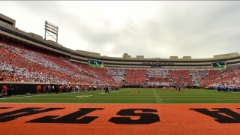
Pat Kinnison - Chief Photographer
Atmosphere counts on a wanna join a conference resume’.
The one change in that statement is Oklahoma State can control its’ resume, appearance, dedication to good football, attendance, and the kind of show that takes place every Saturday at Boone Pickens Stadium or wherever the Cowboys suit up and play.
As for this process, the warning here is the same thing we have said and most other reporters covering the story that have their reputations and aren’t trying to make one have said, this is a long-term situation. It will be ongoing. Right now, everybody is trying to move with great knowledge and calculation.
“I’m guessing and what everyone that I have talked to has said, everything is on the table,” McMurphy said. “If anybody thinks they have come up with the athletic directors, school presidents, and commissioners have decided then they are wrong. This is not just a one-or-two-year thing, this will be a 20-year solution. If anybody tells you they know, they don’t.”
